I spent some of my time this last year doubting myself. Was this trip the right thing to do? What about the kids and their education? What about the money? Am I getting everything I want out of it? Are we missing opportunities along the way?
Everyone we talked to wanted to help us worry about our money and our kids. We fielded a lot of questions about these things. The most common question we encountered was, “You can take your kids out of school?” Apparently, it’s impossible in some countries like Germany and unheard of in most countries. We explained our philosophy of increasing our kids knowledge through experiences out in the world rather than in the classroom. We weren’t too worried.
I was more concerned about doing this trip right. I had read a lot of other travelers’ blogs. Many travelers packed so much in, barely resting, really seeing a lot of the sites in the world. So I had doubts about the choice to travel slowly, planting ourselves in a situation in one place for a month at a time. There were plenty of days without any adventure, some days without anything. Were we missing important experiences? But then I remember the day we went to the field hockey tournament in India. We had this opportunity only because we stayed in one place for so long and got close the people there.
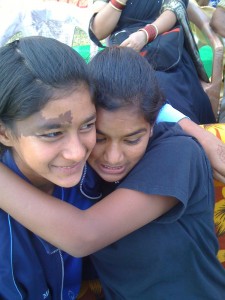 We were staying at an ashram that supports a school of about 500 kids, most of them from the surrounding villages. The school has a boys field hockey team and a girls field hockey team. Both teams are very good. The girls team won regionals last year and went to nationals. It was made up mostly of girls from the ashram with two or three additional girls from the village. We were staying at the ashram when there was a local tournament with three or four other teams. Six of us visitors insisted on going along so we could cheer the girls on. We thought they could use some American style cheerleaders.
We were staying at an ashram that supports a school of about 500 kids, most of them from the surrounding villages. The school has a boys field hockey team and a girls field hockey team. Both teams are very good. The girls team won regionals last year and went to nationals. It was made up mostly of girls from the ashram with two or three additional girls from the village. We were staying at the ashram when there was a local tournament with three or four other teams. Six of us visitors insisted on going along so we could cheer the girls on. We thought they could use some American style cheerleaders.
We rode the school bus with them to the field about 45 minutes away.  The girls, the coach, and their equipment. They were all getting ready for the game. Except one of my favorite girl’s. She probably has ADHD. She lives her life a bit flaky. She forgot her shin guards, socks, and hockey stick. The coach wouldn’t let her borrow equipment. She couldn’t play, and the team was left with only one substitute.
The girls, the coach, and their equipment. They were all getting ready for the game. Except one of my favorite girl’s. She probably has ADHD. She lives her life a bit flaky. She forgot her shin guards, socks, and hockey stick. The coach wouldn’t let her borrow equipment. She couldn’t play, and the team was left with only one substitute.
When we got to the field the other teams were there already. We, the visitors, were escorted to a fancy red and yellow striped tent that looked out over the field. It was the only shade on the entire field, a place for the VIP’s. As soon as we got there everyone wanted to be near us. 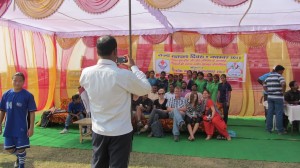 We were placed on the couch in the center of the shelter. We had our pictures taken with what seemed to be each and every visitor and player in every possible combination. We were bombarded with questions. “Where are you from?” “Why are you here?” “Do you know my uncle in California?” It was not only the relatives in the tent who wanted to talk to us but the athletes as well. One pretty girl was pushed forward by her teammates because hers was the best English in the group. Still, all she could say was, “Where are you from?” She couldn’t understand the question, “How old are you?” It made me realize an advantage the kids at the ashram have practicing English with the visitors every day.
We were placed on the couch in the center of the shelter. We had our pictures taken with what seemed to be each and every visitor and player in every possible combination. We were bombarded with questions. “Where are you from?” “Why are you here?” “Do you know my uncle in California?” It was not only the relatives in the tent who wanted to talk to us but the athletes as well. One pretty girl was pushed forward by her teammates because hers was the best English in the group. Still, all she could say was, “Where are you from?” She couldn’t understand the question, “How old are you?” It made me realize an advantage the kids at the ashram have practicing English with the visitors every day.
Another disadvantage of some of the girls was reflected in their uniforms. One of the teams was dressed in their salwar kameez. Colorful long tunics, baggy pants, and each with a dupatta or scarf. Everyone wore the scarf. On some it was tied around their waists. 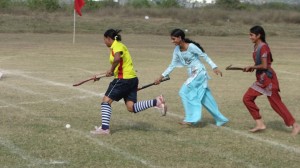 On others it was tied across their shoulders like a sash. One even had it pinned to her shoulders. As the girls were swinging their hockey sticks the dupattas were waving in the wind. They didn’t have the athletic gear of the other teams. No sweat pants or team jerseys. Not even shoes. I was told they couldn’t afford it. They didn’t have the skills either, but they were determined to play. And they sure looked beautiful while running in their colorful suits.
On others it was tied across their shoulders like a sash. One even had it pinned to her shoulders. As the girls were swinging their hockey sticks the dupattas were waving in the wind. They didn’t have the athletic gear of the other teams. No sweat pants or team jerseys. Not even shoes. I was told they couldn’t afford it. They didn’t have the skills either, but they were determined to play. And they sure looked beautiful while running in their colorful suits.
We yelled and cheered and jumped at the side line as our team won one game and lost one game. The team they lost to was an all star team from teams around the region. The refs were former coaches of those girls. We couldn’t help but feel that our kids were being cheated. We could see the bad calls made by the refs. The girls told us they were used to these circumstances in India. With at least 1.2 billion people in India, there’s a lot of competition to get to the top. It’s not always right, and it’s not always fair. The tournament was just a small example.
After the girls played it was time for lunch. During the entire tournament, three men had sat by the side of the field with large pots over blazing fires. They were chopping, stirring, and frying. Feeding the players and the fans was all part of the tournament. We ate a mixed vegetable curry, spicy chickpeas, and deep fried flat bread. The food was delicious, and it was spicy. We needed water. What little we had brought was drunk by everyone sitting in the tent with us when we turned our backs. This was the community of India after all. The cooks offered us tap water to cool the pain. We politely said no. We’d already had enough experience with Indian tap water. The food was delicious, but the water was scary.
After we ate lunch we gathered again in the tent for the award ceremony. The officials presented each of the teams with a plaque, and each of the girls with a medal and a t-shirt. The coaches were called to the podium to receive their presents of sweets. Then Catherine’s name was called. We didn’t hear it. There was no reason for them to have said Catherine. 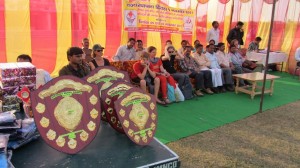 But her name was repeated. Then came the names Bill and Hank and Annie. And our friends Caitlyn and Julie. We each went to the podium and received a flat, square box wrapped in shiny wrapping paper. What was in it? And why were we getting gifts? When we opened the packages we continued asking why. We had each received a very cheap and very kitschy wall clock. They were, of course, plastic, and each had a badly colored, trite photo behind the ticking hands. One had a picture of puppies on it. Another had a waterfall. They were ugly. But someone had gone out during the tournament to purchase and wrap presents for us, the Europeans, the guests of honor. Wall clocks. We never found out why wall clocks.
But her name was repeated. Then came the names Bill and Hank and Annie. And our friends Caitlyn and Julie. We each went to the podium and received a flat, square box wrapped in shiny wrapping paper. What was in it? And why were we getting gifts? When we opened the packages we continued asking why. We had each received a very cheap and very kitschy wall clock. They were, of course, plastic, and each had a badly colored, trite photo behind the ticking hands. One had a picture of puppies on it. Another had a waterfall. They were ugly. But someone had gone out during the tournament to purchase and wrap presents for us, the Europeans, the guests of honor. Wall clocks. We never found out why wall clocks.
They weren’t going to fit in our backpacks. We didn’t really want them anyway. We decided to leave them all at the ashram. The kids there will have something to remember us by when they’re rushing to get ready for school. And we’ll certainly never forget those kids. Or the tournament. Or the wall clocks. Quirky, unique memories. Memories formed by moving slowly through our travels. Wonderful memories. No doubt.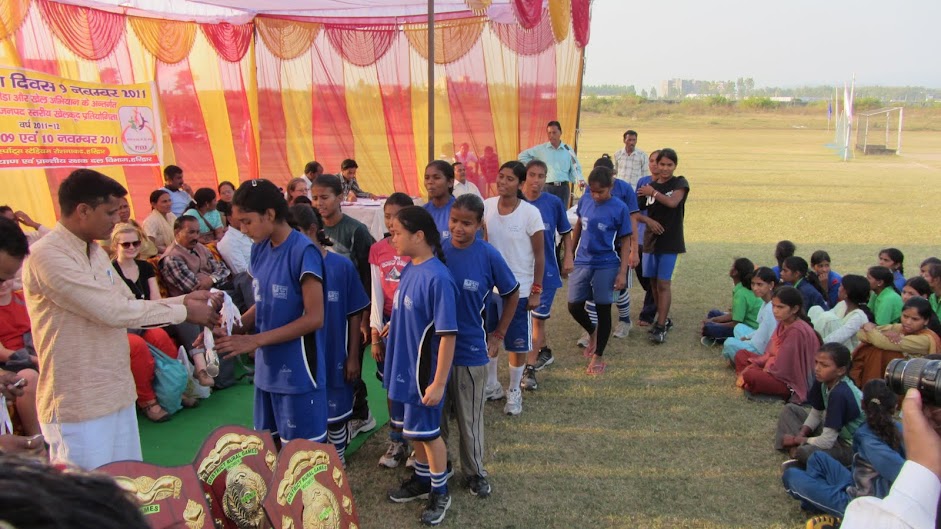
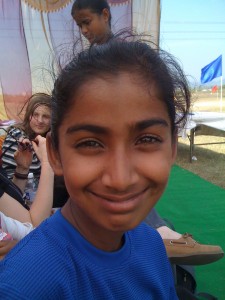

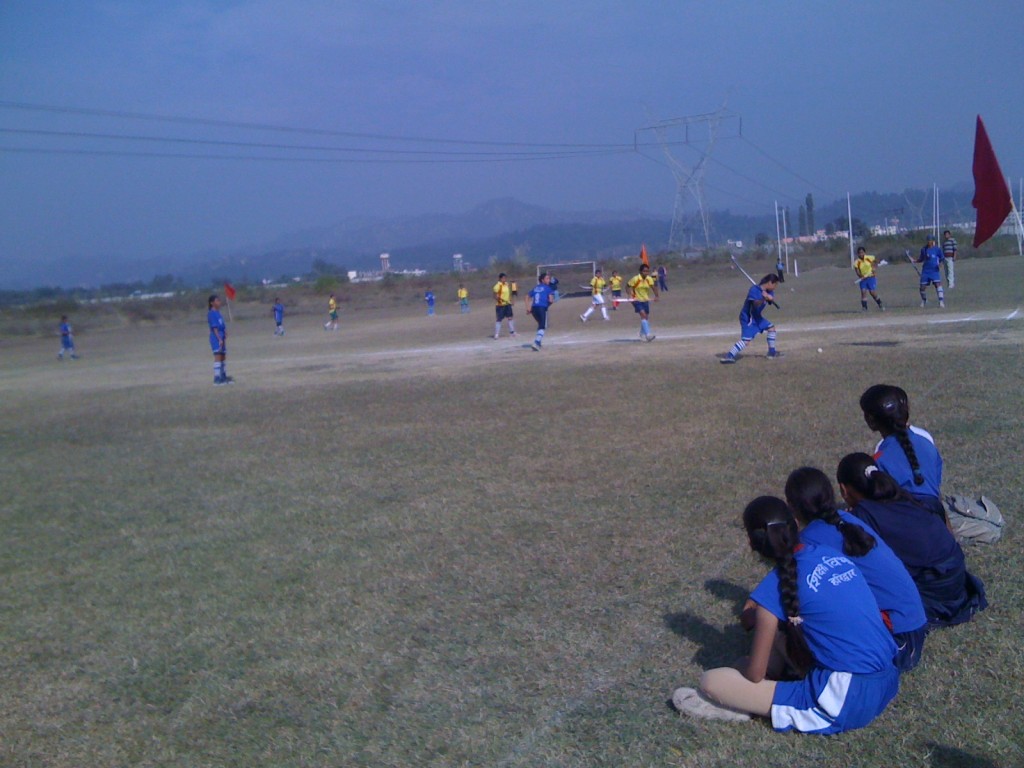
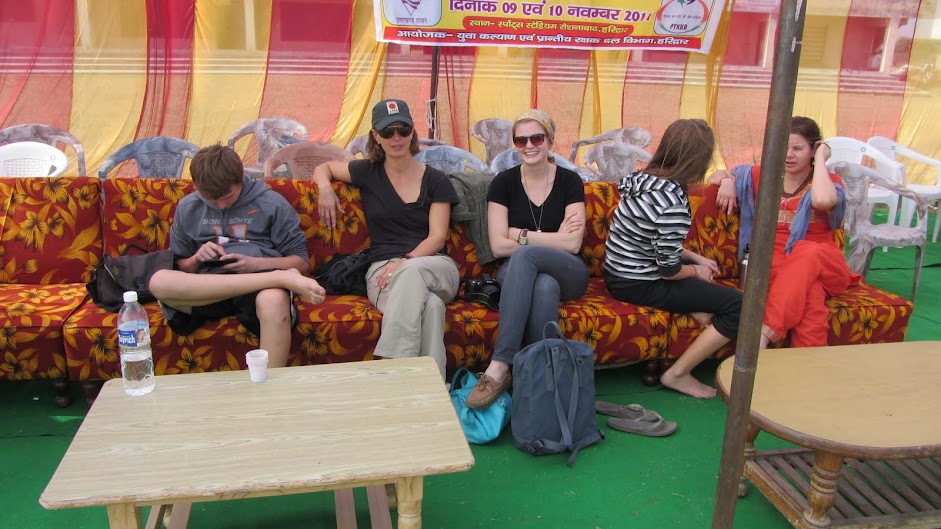
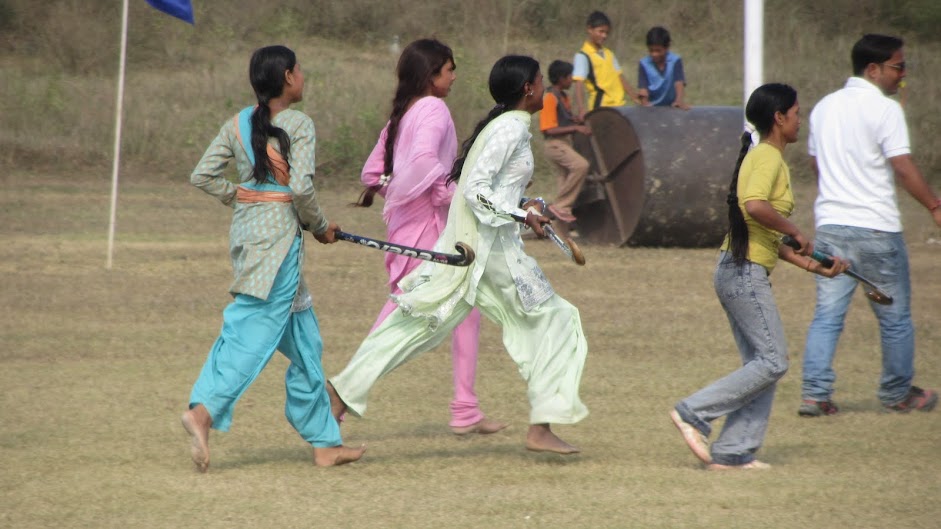
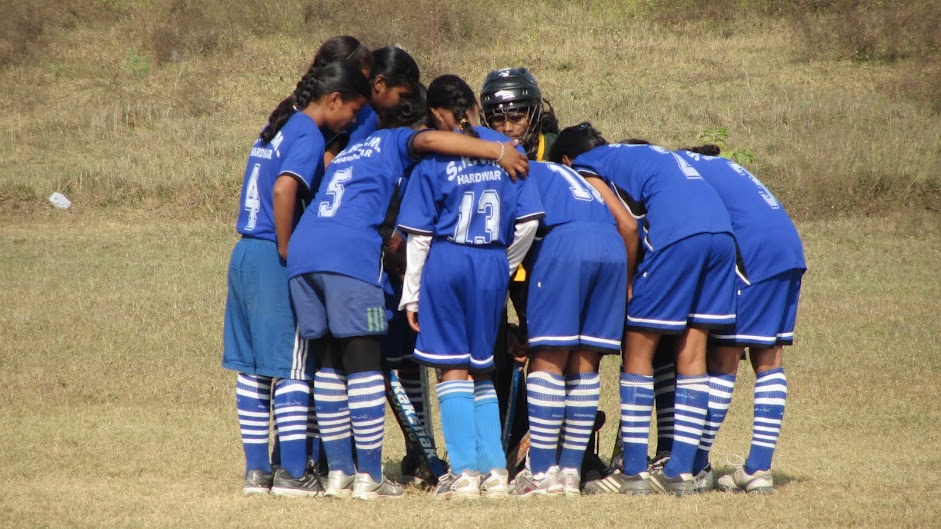
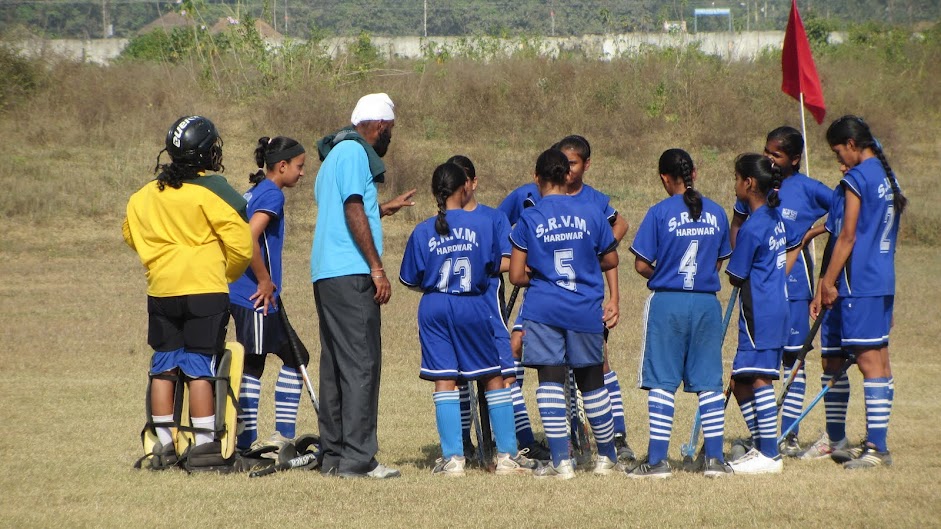
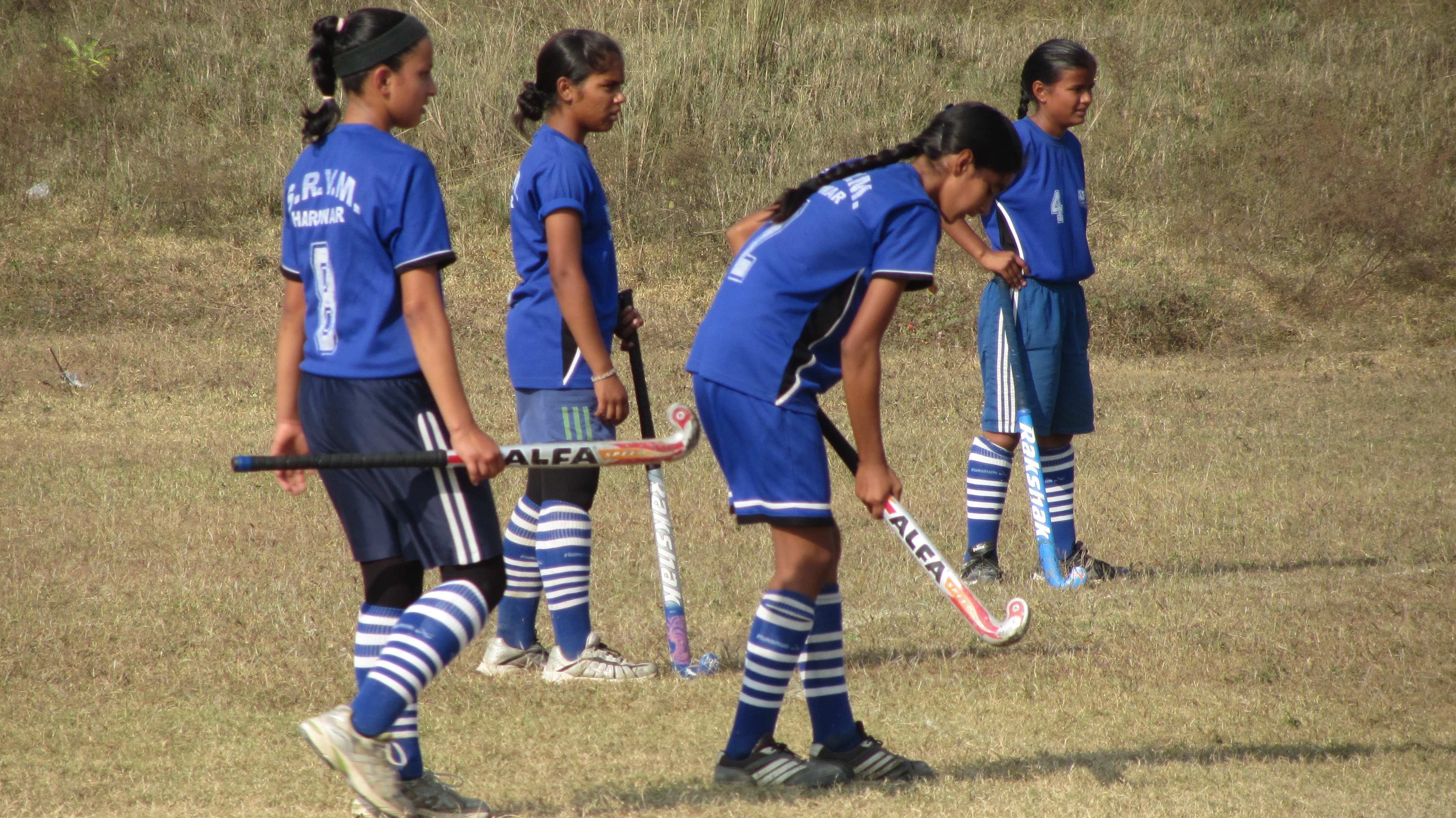
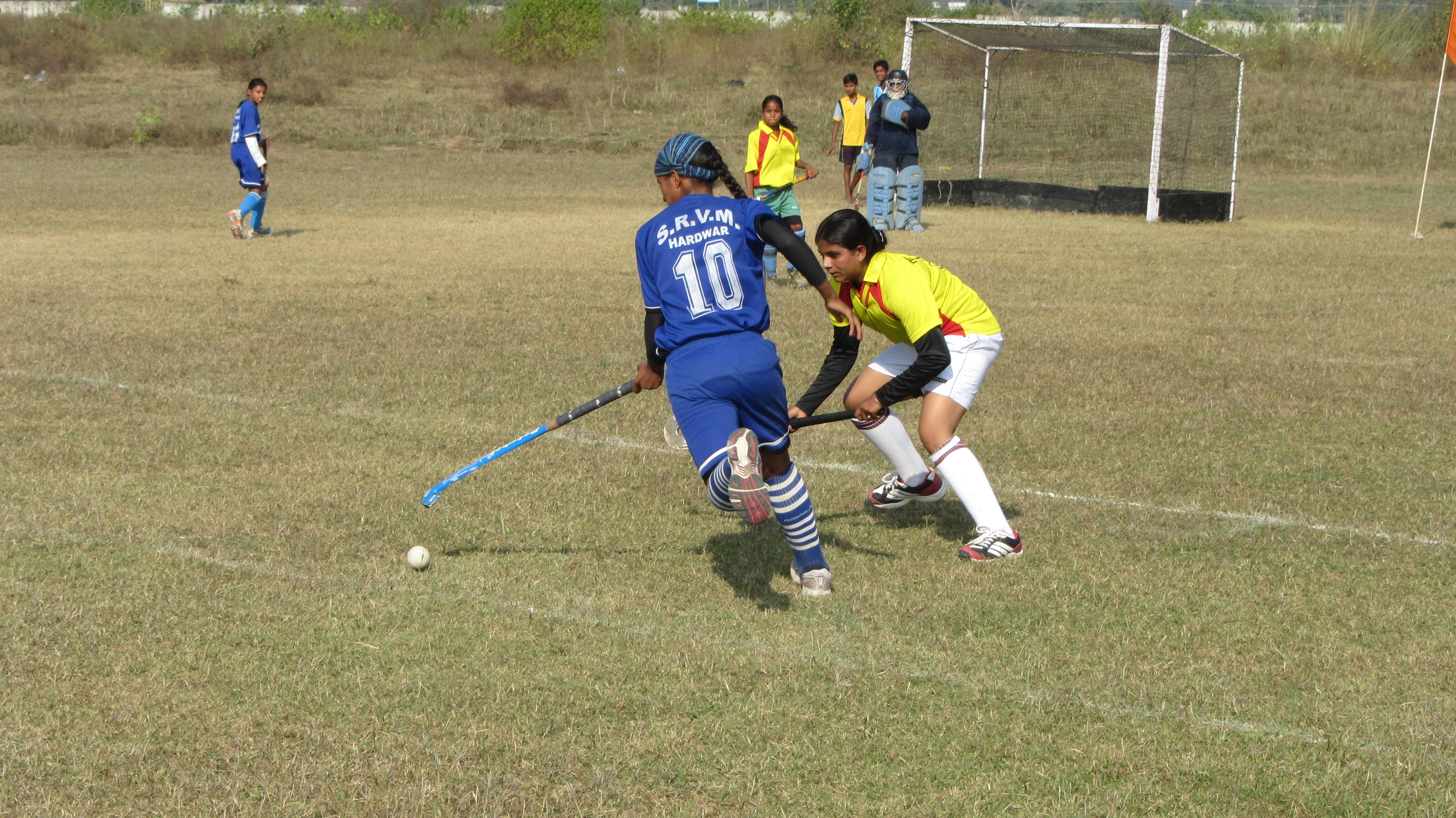
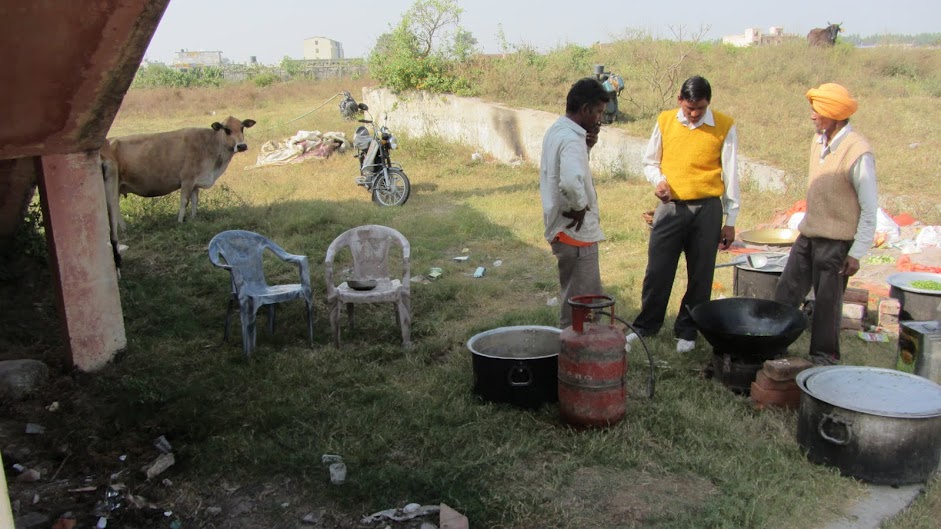
One Response to Field Hockey